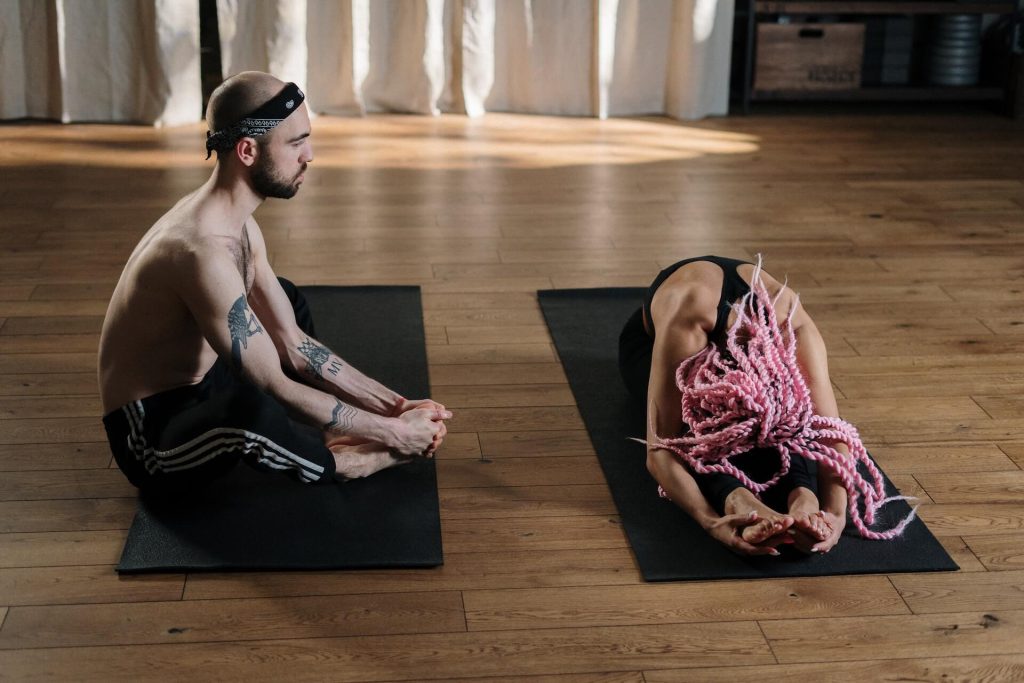Before embarking on a career, it’s important to consider whether you possess the skills required to succeed. The same goes for becoming a personal trainer because lacking these skills can render you ineffective as a PT.
However, the good news is if you don’t possess some of these skills, you can learn them as you advance in your career.
Being a PT has become more than just about having the right degree or being in good shape. It requires specialized skills and essential qualities like empathy and patience that’ll make you an invaluable resource to your clients.
The following skills will not only help you as an individual but will also benefit your clients. With these skills, you are closer to your goal of becoming an expert in your field.
Skill 1: Rapport Building
In simple terms, rapport refers to the connection you seek to establish between you as a personal trainer and your client. It fosters communication and trust, causing your client to be more participative during sessions. The success of your client relationship depends on how well you can build rapport.
Typically, you interact better with clients that are expressive of their fears, likes, and dislikes. Also, when clients find you warm and easy to talk to, they will refer you, helping you to increase your client base.
If there’s no rapport between you and your clients, misunderstandings can ensue. That means you won’t understand their goals well enough to actually help them, which in turn, causes them to feel unsatisfied with your service delivery.
Rapport is especially important when training older clients because you need to slow down and understand what they are trying to say, and then create the best exercises for them.
Skill 2: Multitasking
Another skill a personal trainer must possess is the ability to multitask. Why? Because you may be required to take a large class, especially if you’ve recently landed your first PT job.
A large class means you’ll train as well as keep an eye on your students, keeping each person on track during a class while making corrections where necessary requires multitasking.
The trick with multitasking is that you can only get good at it by practicing. That means intentionally putting yourself in situations where you’ll have to handle multiple things at once.
As scary as it may sound, you’ll find that your ability will quickly improve, and you’ll get better.
Skill 3: Handling Rejection

You may need to switch careers if you can’t handle rejection as a personal trainer. Although unpleasant, as a PT, you’ll face rejections hence the need to know how to handle them.
For instance, you’ll be faced with,
- Clients not renewing their training package
- Clients failing to show up for consultations
- Clients not signing up after consultation
The key to overcoming rejection is to ask for feedback. Rejections can help you realize areas where you need to improve as a PT.
So you might politely ask potential clients why they didn’t want to work with you – in a non-pushy way. You can then use their answers to improve.
So if they say you don’t look “like a PT”, it may be time to bulk up or get a bit more shredded so you’ll have the “PT look.” This is especially important when you’re trying to land clients on the gym floor and are competing with several other PTs.
Skill 4: Foundational Knowledge of Physiology and Anatomy
An understanding of anatomy and physiology is critical for a personal trainer. This knowledge helps you to understand the human body and the importance of specific exercises on the body.
Does your client need some heart-racing metabolic training exercises? Or do they just need to burn away some fat?
Anatomy and physiology also help you to understand the causes of common injuries like muscle strains, sprains, and fractures, so you can prevent them from happening.
Knowing this information can also be helpful when designing rehabilitation programs for clients with injuries.
Skill 5: Motivational Skill

A personal trainer is responsible for motivating their client to work hard and push themselves in every session. You need a high level of emotional intelligence, empathy, and the ability to listen.
As a trainer, it’s also your job to motivate and keep clients engaged in the workout. This means you should be able to pay attention to what motivates different people and know how to adapt to their style accordingly. You should also be able to identify when someone’s motivation is waning and take steps to help get that person back on track.
Skill 6: Time Management
Managing time is an essential skill that every personal trainer must possess. A typical day for you will consist of meeting with clients, attending fitness classes, and doing research. Also, you may be required to perform administrative tasks such as filing paperwork.
It’s important to know when to focus on specific tasks to avoid procrastination or being overwhelmed. Time management can help you strike a balance between your personal life and other job-related activities, like running a gym, for example.
Wrapping Up
Being a personal trainer is about having the right attitude and skills to deliver an effective service to clients. Excellent communication, time management, and patience are skills you must wield to be successful in your field.
In the same vein, you must be knowledgeable on various topics. This way, you’ll provide your clients with the best services possible and help them reach their fitness goals.
